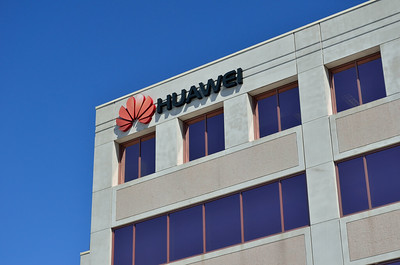In recent years, the Chinese tech giant Huawei has faced relentless challenges in the form of U.S. sanctions, which have had a profound impact on the company’s global operations. However, in the face of adversity, Huawei has not only persevered but also shown remarkable ingenuity by developing its own 5G chip. In this article, we will delve into the question: “Has Huawei overcome U.S. sanctions by developing its own 5G chip?”
Understanding the Sanctions Landscape
To comprehend the significance of Huawei’s 5G chip, we must first grasp the context of the U.S. sanctions imposed on the company. These sanctions, which began in 2019, placed severe restrictions on Huawei’s ability to source critical components and software from American suppliers. This included cutting off access to Google’s Android operating system, which was a major blow to Huawei’s smartphone business.
The Crucial Role of 5G Technology
5G technology is at the forefront of the global tech revolution. It promises faster data speeds, lower latency, and a wide range of applications, from autonomous vehicles to the Internet of Things (IoT). Given its strategic importance, countries and companies worldwide are vying to establish themselves as leaders in 5G development.
Huawei’s Resilience and Innovation
Amid these sanctions and the ever-evolving 5G landscape, Huawei took matters into its own hands. The company began investing heavily in research and development, culminating in the creation of its own 5G chip. This move marked a turning point in Huawei’s quest to remain a competitive player in the global technology arena.
Advantages of Huawei’s Proprietary 5G Chip
Huawei’s proprietary 5G chip offers several advantages. Firstly, it allows the company to reduce its dependence on American suppliers, thereby mitigating the impact of sanctions. Secondly, it positions Huawei as a leader in 5G technology innovation, potentially attracting partnerships and collaborations with other global players. Lastly, it underscores Huawei’s commitment to technological self-sufficiency and resilience.
The Global Implications
The development of Huawei’s 5G chip has raised eyebrows around the world. It poses a potential challenge to the dominance of American chip manufacturers and could alter the dynamics of the global technology supply chain. Moreover, it raises questions about whether other Chinese tech companies will follow suit and invest in developing their own chips to navigate similar challenges.
Conclusion
In the face of daunting U.S. sanctions, Huawei’s development of its own 5G chip is a testament to the company’s resilience and innovation. While it remains to be seen whether Huawei has fully overcome the sanctions, this move signals a significant step towards self-reliance and technological leadership. The global tech industry will undoubtedly keep a close eye on Huawei’s progress in the 5G arena, as it continues to shape the future of connectivity and innovation.












